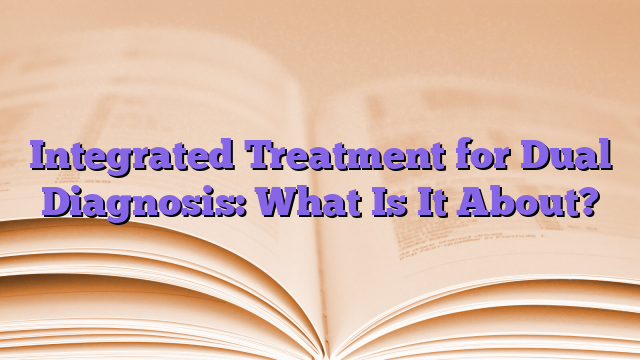
Integrated treatment for dual diagnosis is the time when a person who is experiencing dual diagnosis is receiving combined intervention and treatment for mental illness and abuse of destructive substances from his or her psychiatrist. Treatment that can be done through integration is all the while difficult but possible.
In treatment and management of dual diagnosis, it is most helpful that the person receiving treatment has his or her hopes full in order to develop the needed skills and knowledge and support that they direly need. This will help them see how meaningful their treatment is and how goals in life must be achieved.
Even if there are difficulties in making a plan for treatment for dual diagnosis, some psychiatrists are already engaging in the course of action. You will know or get a hang of things the moment your physician does things that are quite numerous. Some of which can be indicated by:
• Encourage and help you be involved with supported services and employment that can help hasten your recovery and lead to more interesting and helpful processes.
• Help you visualize about the different roles of alcohol and drugs are negatively contributing to your life. The physician will let you realize of how these types of addictions have destroyed and affected your life severely. This process must be done in confidentiality that will not result to any kind of negative consequences which may hurt the client.
People, especially those afflicted with some kind of disorder, feel more secured and confident to talk about the different issues in their lives if it is done in a non-judgmental, confidential and no-strings-attached type of conversation.
• The physician will also give you the opportunity to learn more about the effects of drugs and alcohol in a person’s body. This will give the client more knowledge about the different substance dependencies and how it has managed to take over his or her life in an instant. You will also learn about the interaction of every medication and mental health problems.
• Help you become more self-reliant in order for you to identify your own goals for faster recovery. Once you have decided the negative outcomes of your dependency and how it has affected your mental status, you will be able to define the problems that you are recently facing and be able to find the appropriate solution even without the help of your psychiatrist. You can forward your thoughts and ideas on a counselor that will train you to develop goals for recovery. In this process the client will learn about the different strategies in order to recover without relapses.
If you are someone who is experiencing dual disorders, strict participation is needed in order to treat the disorders effectively all at the same time. With treatment aimed at effectiveness, it will be more effective to say that the disorder may be reduced including any additional predicaments like: financial problems, suicide, violence, physical and sexual victimization, increased symptoms of mind illness, homelessness, incarceration and early death.
As someone who is affected by dual diagnosis, you must have all the information needed in order to cope with the situation in your utmost level. You should also be able to identify the different causes of any kind of relapse in order to avoid it.
